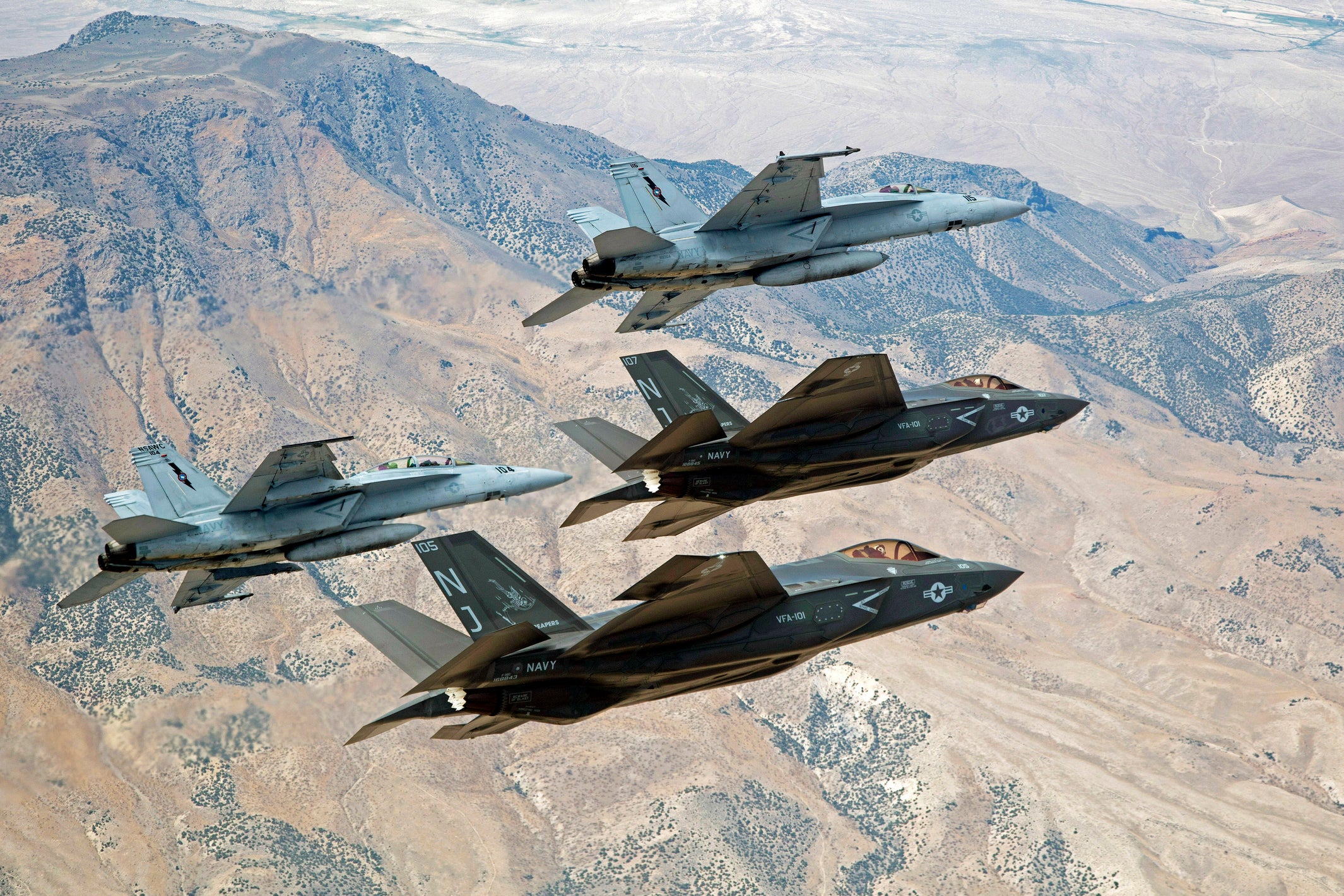Nevada naval air base expansion heads to Biden's desk
The U.S. Senate passed a massive expansion of a northern Nevada naval air base as part of its defense spending bill that is set to finalize a historic transfer of public land to military use

The U.S. Senate has voted for a massive expansion of a northern Nevada naval air base that could lead to finalizing a historic transfer of public land to military use.
The Senate on Thursday approved as part of the annual defense spending bill what is likely to be one of the final steps in yearslong negotiations to designate 558,000 additional acres (about 226,000 hectares) for bombing and military use to the Naval Air Station (NAS) Fallon 65 miles (104 kilometers) east of Reno.
The measure also designates more than 580,000 acres of land for conservation, wilderness areas and other protected areas, as well as 18,000 total acres of land (about 7,284 hectares) and $20 million each to two Native American tribes. Rural Churchill County will also receive $20 million.
The Fallon training complex is the Navy’s main aviation training range, supporting aviation and ground training, including live-fire training. All naval strike aviation units and some Navy SEALS train at Fallon before deployment.
The House approved the National Defense Authorization Act last week. It now awaits President Joe Biden’s signature.
The management of Nevada’s vast swaths of federal land, and the differing needs it serves, has long been a push-and-pull for different groups in Nevada that has resulted in legal battles over lithium mining, development, national monuments and endangered species designations. The naval air base expansion has been under consideration for years as Nevada’s congressional delegation has introduced it time and again with a balancing act for different groups’ interests: the Navy, conservationists, local counties and Native American tribes who have long seen the land as sacred.
The expansion will “improve our national security, fuel economic growth in Churchill County, and preserve important cultural heritage sites for Tribal nations,” Democratic Sen. Catherine Cortez Masto said in a statement. Praise also came from Nevada Democratic Gov. Steve Sisolak, Democratic Sen. Jacky Rosen and Republican Rep. Mark Amodei and Churchill County Chairman Pete Olsen.
The Navy has said the expansion is critical to meeting combat training needs for modern aircraft and weapons systems that have outgrown training capabilities over the past two decades.
“This critical legislation enhances our Nation’s security by allowing our Carrier Air Wings and Naval Special Warfare Teams to train in a more realistic environment and better prepare for strategic competition,” Secretary of the Navy Carlos Del Toro said in a statement.
Several groups have historically been split or critical of the expansion, including conservationists and some nearby tribes. Jocelyn Torres, the senior conservation director of the Conservation Lands Foundation, thanked Cortez Masto for “crafting a delicate community compromise.”
But Patrick Donnelly of the Center for Biological Diversity called it “a devastating loss for Nevada wildlife.”
He said the public land set to be transferred is one of the few swaths of U.S. land that is largely absent of humans. He added that even parts of the land that will still be maintained by the U.S. Interior Department will still hold combat training exercises that can harm wildlife.
Tribes near the air base see the valley as sacred grounds where they have resided for more than 10,000 years.
“While our tribe will never support the expansion of NAS taking more of our ancestral lands,” said Cathy Williams-Tuni, the chairwoman of the Fallon Paiute-Shoshone tribe, “we’re still very thankful and grateful of the many benefits that the NDAA for our tribe has, and how it’s going to affect our tribe and other tribes.”
Williams-Tuni has long said that they would work closely with the military and Nevada’s delegation to “come up with — we don’t always want to say this word, but a compromise.”
The Paiute-Shoshone Tribe is not against national defense, she added, but there is also an importance to the ancestral lands, with burial sites and artifacts spread out across the acreage.
Williams said Thursday that the next step is for the tribe to co-steward the lands with the Department of the Interior and the Navy, which she could potentially include a cleanup program of military residue and the transfer of some vital materials to the tribe for heating subsystems.
The $20 million to the Fallon Paiute-Shoshone tribe will go toward building and maintaining a cultural center, and they will have 10,000 acres (about 4,047 hectares) of land held in trust. The Walker River Paiute tribe’s $20 million is due to past ordnance contamination on tribal land, with just over 8,000 acres held in trust.
It’s in contrast to years ago, when one of the NDAA proposals failed gave the Fallon-Paiute Shoshone Tribe significantly less acreage.
Williams-Tuni said Thursday she is looking forward to “explaining to our membership how we didn’t just give away, and we didn’t give in.”
When the NDAA passed the House last week, Amber Torres, Chairman of the Walker River Paiute tribe, called it “a momentous day where an historic injustice against the Walker River Paiute Tribe has been resolved” in a statement.
Bookmark popover
Removed from bookmarks